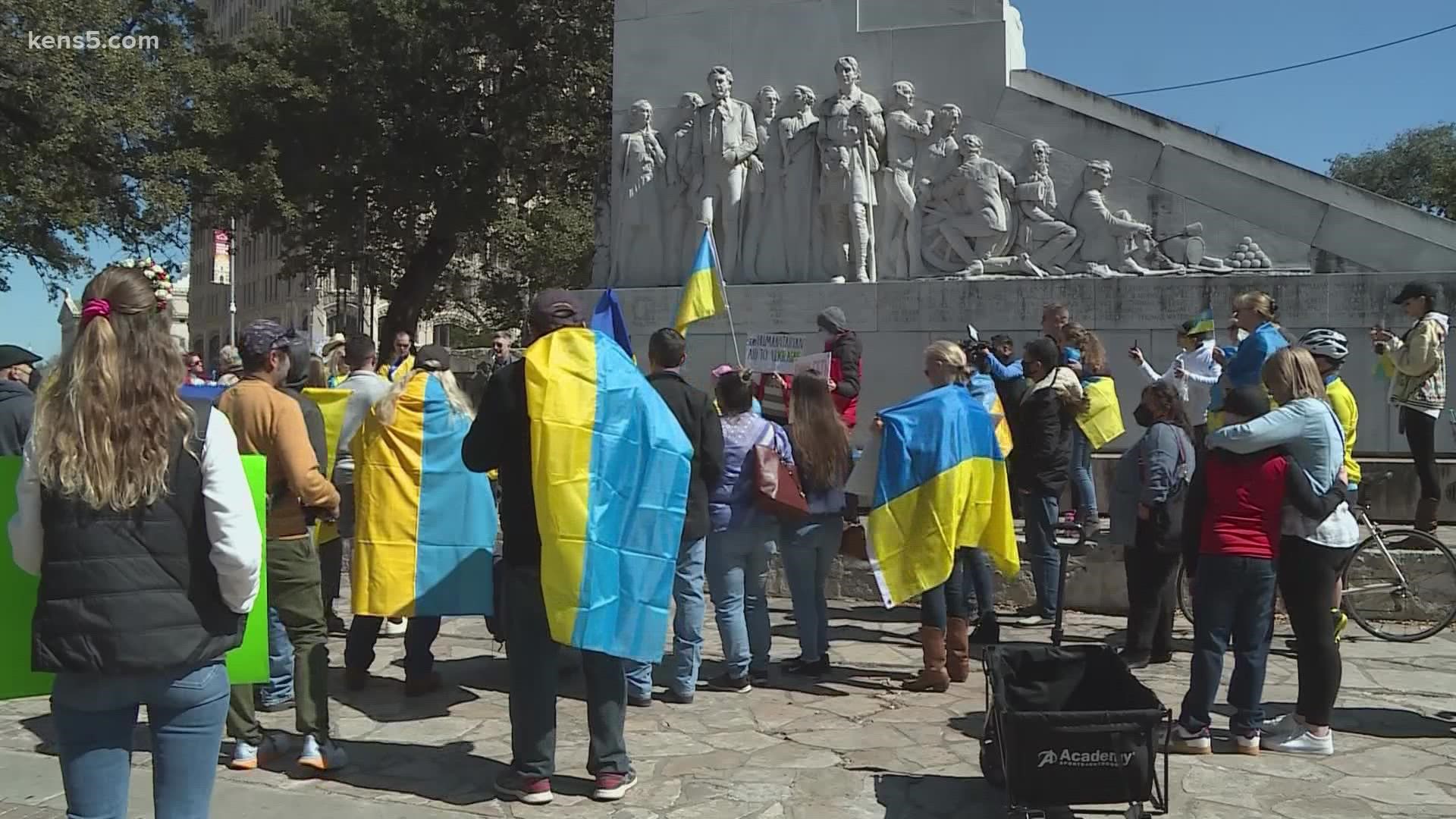SAN ANTONIO — Some feel Russia’s invasion of Ukraine only hurts both sides. For a San Antonio man from Russia who has family in both countries, that rings painfully true.
His family is trying to stay safe as Ukraine is at war with its neighbor. Meanwhile, Russian leaders want to control the narrative on why this took place.
People around the world are digesting and reacting to the information being reported by international media. One group of college students in San Antonio is taking a closer look at Russian media’s version of events in Ukraine.
Many Ukrainians and Russians can’t comprehend why the fighting escalated this past week.
“[Vladimir Putin] has got these false pretenses that he’s protecting Russian people who somehow are dissatisfied with Ukraine," said Andrey Samodumov, who spent his teen years in Russia before moving to Houston. "But it’s only hurting my family in Russia and my family in Kyiv."
He’s been living in San Antonio for the past few years and worries for his family in Europe.
“They can hear the explosions," he said. "They don’t see them yet, at least (not) in their part of Kyiv. But they definitely hear the gunfire…They’re pretty much hunkered down and just hoping that buildings won’t collapse around them."
He keeps in touch with his cousins through Facebook Messenger.
Samodumov said he's proud people are supporting Ukraine’s fight as the conflict takes over international headlines.
One of his concerns is how fast information and misinformation surrounding this conflict is spreading. Who exactly is writing those messages and the language they're written in is the subject of a new study started by a UT San Antonio class this semester.
“We’re looking at this topic kind of in the way you’d look at a film or book, we’re doing textual analysis,” said Andrew Chapman, director of UTSA’s Russian program.
Chapman has spent 20 years studying the Russian language and its culture, and has event spent several summers abroad in Moscow. Chapman is coteaching the class called “Russia in the Fake News.” As a group, the class reads stories about the Ukraine-Russia conflict from various sources.
“We’re generating a lot of data about the different stories that Russian media wants, domestically, its citizens to hear, but then also wants the rest of the world to hear,” Chapman said.
Chapman says the events unfolding are creating a range of emotions among students who are studying Russian language and culture.
“For myself, as a teacher of Russian and as a teacher of foreign languages…we really want and need people to understand cultures across the world in order to understand why these types of events are happening,” Chapman said.
Samodumov, meanwhile, remains empathetic toward Ukrainians here and around the world. He hopes others can do the same.
“Someday, you know, this could affect them one way or another," he said. "Just try to be empathetic and mindful about what’s going on in the rest of the world."

